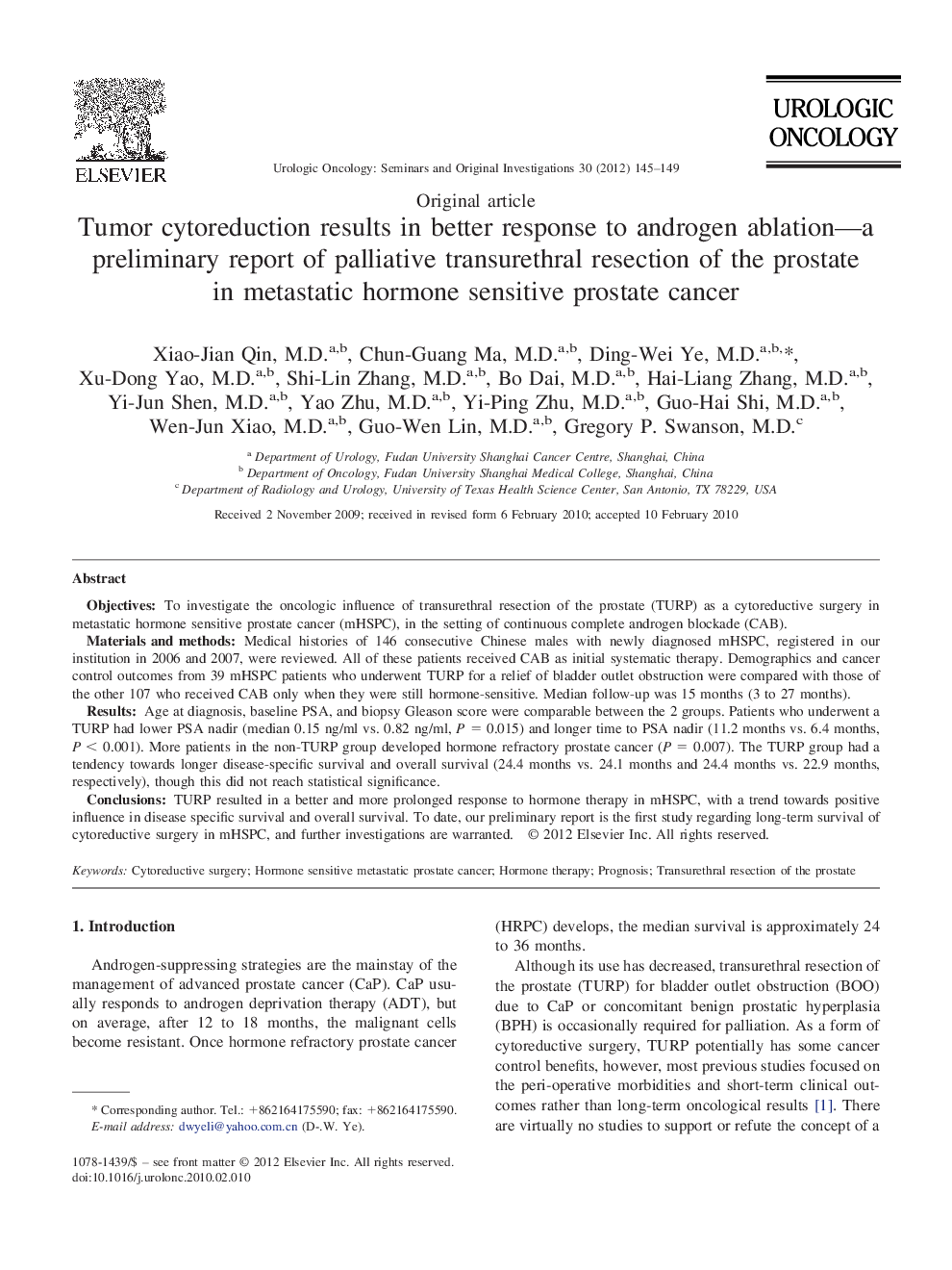| Article ID | Journal | Published Year | Pages | File Type |
|---|---|---|---|---|
| 4000380 | Urologic Oncology: Seminars and Original Investigations | 2012 | 5 Pages |
ObjectivesTo investigate the oncologic influence of transurethral resection of the prostate (TURP) as a cytoreductive surgery in metastatic hormone sensitive prostate cancer (mHSPC), in the setting of continuous complete androgen blockade (CAB).Materials and methodsMedical histories of 146 consecutive Chinese males with newly diagnosed mHSPC, registered in our institution in 2006 and 2007, were reviewed. All of these patients received CAB as initial systematic therapy. Demographics and cancer control outcomes from 39 mHSPC patients who underwent TURP for a relief of bladder outlet obstruction were compared with those of the other 107 who received CAB only when they were still hormone-sensitive. Median follow-up was 15 months (3 to 27 months).ResultsAge at diagnosis, baseline PSA, and biopsy Gleason score were comparable between the 2 groups. Patients who underwent a TURP had lower PSA nadir (median 0.15 ng/ml vs. 0.82 ng/ml, P = 0.015) and longer time to PSA nadir (11.2 months vs. 6.4 months, P < 0.001). More patients in the non-TURP group developed hormone refractory prostate cancer (P = 0.007). The TURP group had a tendency towards longer disease-specific survival and overall survival (24.4 months vs. 24.1 months and 24.4 months vs. 22.9 months, respectively), though this did not reach statistical significance.ConclusionsTURP resulted in a better and more prolonged response to hormone therapy in mHSPC, with a trend towards positive influence in disease specific survival and overall survival. To date, our preliminary report is the first study regarding long-term survival of cytoreductive surgery in mHSPC, and further investigations are warranted.
